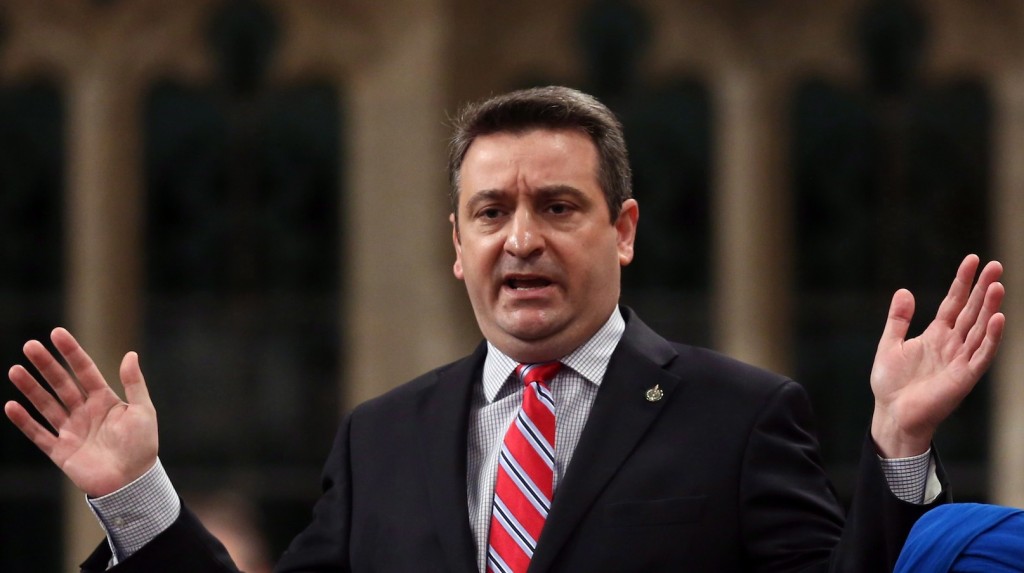Does the House want to change the rules for Question Period?
Debating the Calandra Rule
Aaron Wherry
Share
At noon today, the House of Commons will turn its attention to the NDP’s proposal to implement a new rule for question period: specifically to empower the Speaker to cut off any response that is not relevant to the question asked. Debate will go through the afternoon, with a vote on the motion expected for tomorrow.
I’m told the Liberals will support the motion, but the government will not, presumably killing the motion unless some number of Conservative backbenchers decide to go their own way. (I don’t, at this point, have any insight into whether or not this will be considered any kind of free vote for Conservatives. Opposition motions are not to be confused with private members’ business: the latter might more generally be voted on freely, while the former generally involves party positions.) Government House leader Peter Van Loan will be up in the House at 12:30 p.m. to explain the government’s position.
Over the weekend, Gary Levy, former editor of Canadian Parliamentary Review, argued that the Speaker doesn’t need a new rule so much as he needs the courage to impose himself on the proceedings.
During a famous filibuster over the flag bill in the 1960s Speaker Alan Macnaughton used his discretion to split a motion into two parts and have two votes, thereby ending the filibuster. At the time, the Speaker did not have any authority under the rules to split motions but he did so under his general discretionary authority. What seems to be lacking among recent Speakers is not authority under the Standing Orders but the wisdom to understand their role and the courage to act.
Levy also drew a line he’d like to see enforced.
The problem is not that ministers sometimes obfuscate or are unwilling to answer certain questions. The real problem is the growing trend whereby ministers and parliamentary secretaries (who should not be answering at all but that is another issue) are answering questions by posing their own questions back on the Opposition. Ask Stephen Harper a question about electoral fraud and if you are an NDP member you get back a question about NDP constituency office spending. Ask him about the Senate scandal and if you are a Liberal you get back a question about sponsorship…
This trend of the government asking questions of the Opposition has been going on for years. It flies in the face of a basic convention whereby a government answers to the Opposition but not vice versa. Question period is not a two way street. A good Speaker could and should put an end to the government questioning the Opposition. A strong statement followed by an ejection or two would do the trick.
I think I’m with Gary on both those points. Were anything like the NDP motion to pass, it would be very interesting to see how Andrew Scheer applied the new rule—particularly whether he enforced it stringently enough to satisfy opposition MPs and observers.
For the sake of comparison, Radical Centrist goes through the standing orders of Australia and New Zealand respectively to review how questions and answers are dealt with by our Westminster cousins. New Zealand seems most stringent on this issue of relevancy.
